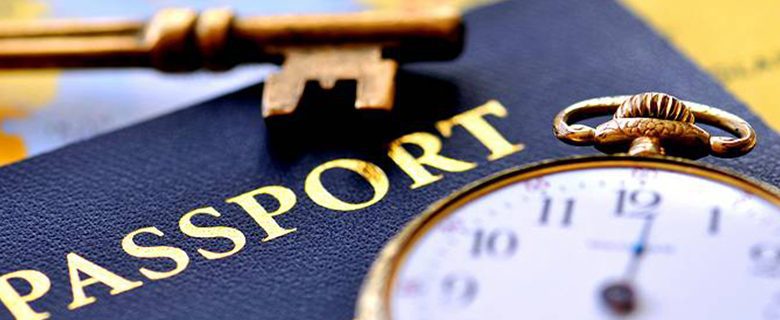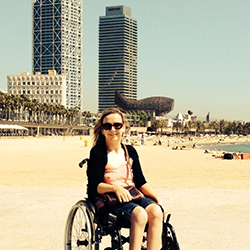
Disability and travel: top Q&As
If you have a disability, travelling is rarely straight forward. So that’s why we’ve teamed up with Carrie-Ann Lightley from Tourism for All, to bring you a series of articles to help make travelling and disabled holidays easier and more accessible. This month she shares her top Q&A’s.
#DHgurus
 Q – How can I get extra funding needed to travel with several support workers? My situation is quite unique, but I very much want to travel a lot more.
Q – How can I get extra funding needed to travel with several support workers? My situation is quite unique, but I very much want to travel a lot more.
A – Great to hear that you are trying to travel more! It may be necessary to apply to several trusts or funds, particularly as some will not be able to meet the full cost of a holiday. Many people find that local sources of funding are the most effective, including Citizens Advice Bureau who may know of local funds to help in emergencies and hardship. If you have a social worker or health visitor, they may know if local authority funding is available. It may be worth researching Rotary Clubs, Round Table and Lions Associations who are all known for their local generosity.
Tourism for All publish a guide to financial help towards the cost of a holiday or respite break: This publication includes details of trusts for specific disabilities, occupations, ages and regions. We request a small donation, to cover our printing and postage costs, of £3.50. You can order on our website at TourismForAll.
Q – I am a power wheelchair user and cannot really travel in another wheelchair, especially a manual one. Is it possible to travel somewhere remote but beautiful (like Ha Long Bay in Vietnam, Anguilla and/or islands in the South Pacific, etc.)?
A – Ha Long Bay has a number of accessible hotels. Accessible vehicles, however, are harder to come by. Whilst wheelchairs can be accommodated in some vehicles where available, they are not to the same standards as those to be found in Europe or the US.
Therefore, a fantastic way to explore parts of the Far East would be to go on a cruise. For example, you could fly from the UK to Hong Kong. The ship then sets sail the next day to Ha Long Bay in Vietnam, calls in for overnight stops at Da Nang and Ho Chi Minh before its final destination, Singapore and a return flight to the UK the next day.
The islands and atmosphere of the Caribbean are also best soaked up by a cruise holiday. Cruise ships are an extremely comfortable way of travelling for passengers with disabilities, offering complete wheelchair access, fully adapted cabins and lots of modern features and facilities.
DisabledHolidays.com can arrange all of this.
Q – How do you manage on a plane? I have to be hoisted now so there’s no way I can fly, or is there?
A – In terms of mechanical hoists, the most commonly used one for enplaning and deplaning is the Eagle hoist.
The alternative is a manual sling. The ProMove sling is designed to be placed beneath a seated individual to allow a team of two or more operatives to lift and move that individual to another position or location.
Q – Does anybody know of wheelchair friendly hotels or villas in Spain that you can drive to?
A – Las Piedras Accessible Holidays have an accessible hotel and apartments, 1 hour’s drive from Malaga. It is possible to drive there from the UK via Eurotunnel. El Pleamar Accessible Apartments are lovely, totally wheelchair accessible apartments, right on the beach at Torrox Costa. Bars and restaurants are easily accessible from the apartments. Las Piedras Accessible Hotel is a small, friendly hotel with the highest level of accessibility. Half an hour from the beaches of the Costa del Sol. Enjoy great food, beautiful views and a warm welcome.
Q – I’m planning a holiday to Northern Ireland and am looking for accessible, self-catering accommodation – a friend gave a great suggestion of Strangford Bay Lodge which is perfect but a little far from Belfast. Any other suggestions would be great! Plus any other info on travelling via ferry.
A – Strangford Bay Lodge is the only holiday accommodation in Northern Ireland with a Changing Places toilet available. I contacted Discover Northern Ireland for assistance on finding others, as their website doesn’t have an obvious way of searching for accessible accommodation, but unfortunately received no response.
Many ferry companies have lifts, toilets and wheelchair facilities; some can supply wheelchairs at terminals. A few have special cabins for people with disabilities and/or offer discounts. However, different companies, ports and vessels have different facilities and policies, so it is advisable to check in advance with the ferry company or cruise operator before you book your ticket or start your journey.
If you use a wheelchair when travelling or have severe walking difficulties, are blind or partially sighted, always let the ferry company or cruise ship operator know in advance what assistance you will need, to ensure that this can be provided.
By Carrie-Ann Lightley, Information Service Manager at Tourism for All
Check out…
• Disability and travel: top travel tips
• Accessible Caribbean island: from a travel addict and wheelchair user
• Top 10 tips for a hassle-free accessible holiday
Get in touch by messaging us on Facebook, tweeting us @DHorizons, emailing us at editor@disabilityhorizons.com or leaving your comments below.